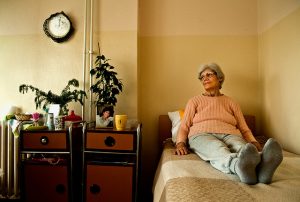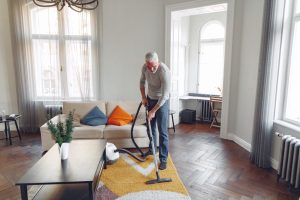Guest Blog:The Best Anti-Aging Skincare Routine for Seniors
 Everyone wants to look young forever, but it’s not always possible. After all, time can be cruel. But, you don’t have to spend your days feeling old and decrepit. There are a few things that you can do to fight the signs of aging on your skin while avoiding surgery or other invasive treatments. Here are some of the best anti-aging skincare routines for seniors:
Everyone wants to look young forever, but it’s not always possible. After all, time can be cruel. But, you don’t have to spend your days feeling old and decrepit. There are a few things that you can do to fight the signs of aging on your skin while avoiding surgery or other invasive treatments. Here are some of the best anti-aging skincare routines for seniors:
Moisturize
You should use a moisturizer every day so that your skin doesn’t become dry and cracked. Look for products with sunscreen protection if you live in an area where sunlight is abundant.
Exfoliate
It’s important to exfoliate regularly so that new cells will grow. Exfoliating can also help you to get rid of dead skin cells, which makes your complexion look more vibrant and healthy. That’s why you should moisturize every day so that your skin doesn’t become dry and cracked.
Avoid the sun
If possible, avoid spending time in direct sunlight for extended periods. Because it’s damaging to your skin unless you’re wearing sunscreen with a high level of protection. Finally, be sure that you wear sunglasses when outside so that ultraviolet light doesn’t do any damage on its own.
Exercise regularly
It’s important for everyone over 50 years old to exercise. Make it at least six times per week to stay fit and maintain their weight (or lose extra pounds). The best part is that exercising has a lot of benefits for your skin, so it’s good for more than your body.
Avoid smoking
Smoking not only causes lung cancer but also leads to premature aging. If you have trouble quitting the habit, consider seeing a doctor about some programs that can help. Try adding anti-aging products into your routine until you’re able to break this nasty addiction.
Eat healthy food and drink plenty of water to keep yourself from becoming ill or dehydrated. This is especially important if you live with other people who might be sick because they’ll make you sick too. It will protect them as well since most germs are spread by close contact with someone else who has them already anyway. You don’t want to spend your golden years sick, do you?
Avoid stress
This is another major skincare issue for seniors. If you want a clear complexion and fewer wrinkles around the eyes or mouth, try not to let yourself get too stressed out about anything. Stress leads to lots of different skin problems including acne breakouts and psoriasis flare-ups. Don’t sweat it if something goes wrong because there’s always tomorrow. It will make a huge difference in how you look. You’ll feel better as well from all that relaxation time. This means that everyone wins when you don’t worry too much about things outside of your control. Remember: life happens but it doesn’t have to happen to you.
Use of serums
These are fantastic all-natural anti-aging skincare products. This is where all the magic happens from a skincare standpoint. There’s been tons of research done on this all-natural ingredient. Which has been shown time and time again to be effective for brightening up sun-damaged skin. Then protecting against future UV damage by neutralizing free radicals in the body before they even have a chance to do any harm.
You can also use a fantastic all-natural antioxidant serum that will protect your skin from free radical damage. Also other harmful environmental toxins like smog and cigarette smoke. These all natural products should be applied every morning right after you wash your face. This will give your skin all day protection against UV exposure as well as pollution.
Closing Thoughts
Maintaining a good skincare routine can be very helpful for seniors because it helps to keep them looking young. You don’t need surgery or invasive treatments if you’re willing to try some simple things out first. Take care of yourself and your skin will reward you with a youthful appearance that won’t age as quickly as the rest of your body. Don’t neglect these tips for anti-aging skincare routines unless you want everyone seeing right through how old you are. These tips will help anyone over 50 years old who wants to look younger. Without having any dangerous side effects from traditional surgical methods.



